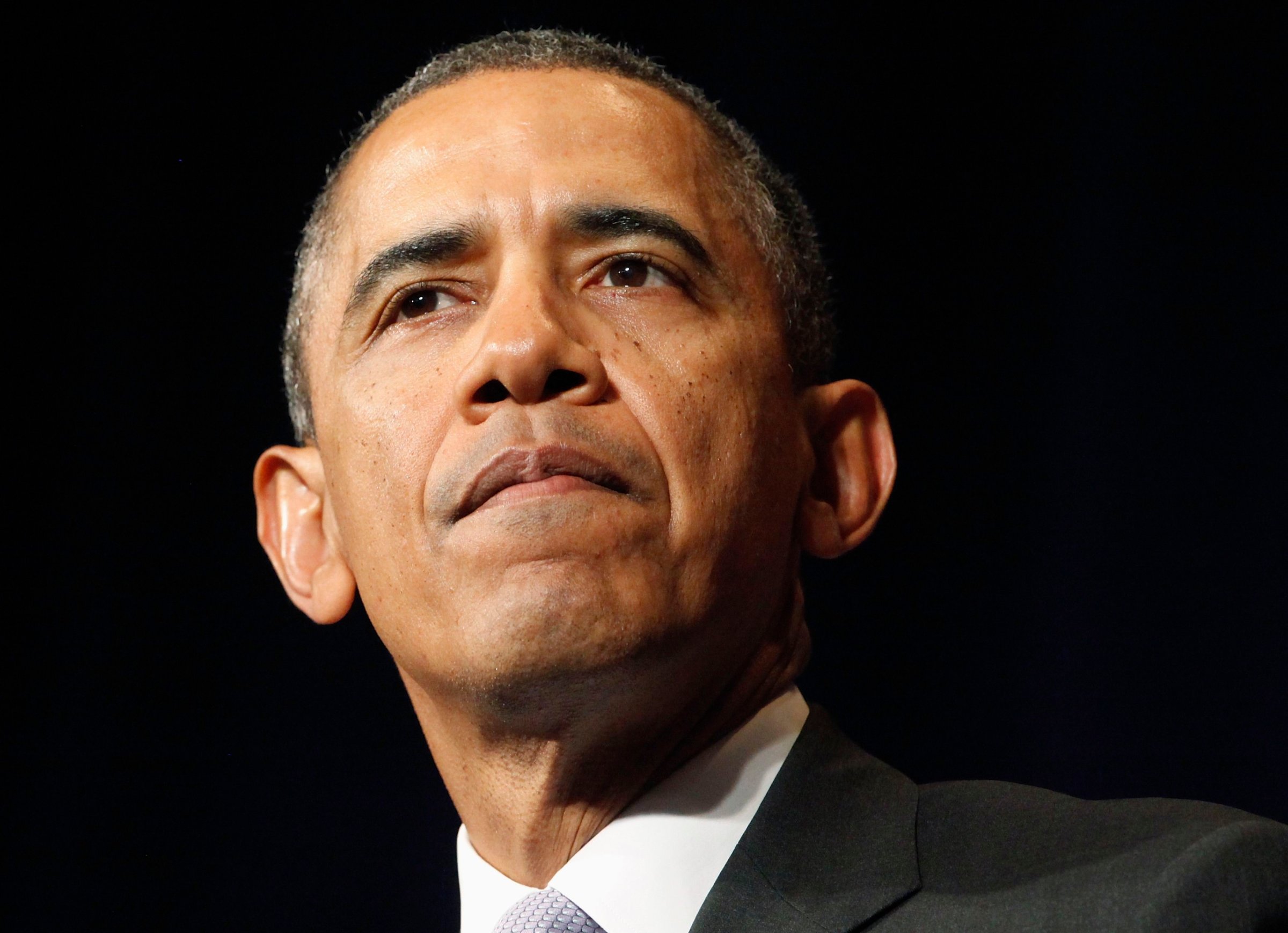
President Obama set the table for Monday’s meeting at the White House with Israeli Prime Minister Benjamin Netanyahu by pointedly warning that if current peace talks with the Palestinians fall apart, the United States may not be able to protect its longtime ally from the consequences.
“If you see no peace deal and continued aggressive settlement construction — and we have seen more aggressive settlement construction over the last couple years than we’ve seen in a very long time,” said in an interview with Bloomberg View published late Sunday. “If Palestinians come to believe that the possibility of a contiguous sovereign Palestinian state is no longer within reach, then our ability to manage the international fallout is going to be limited.”
Israel has built some 200 guarded subdivisions and towns on land it conquered in the 1967 Six Day War. The roads and areas reserved for the 350,000 Jewish residents bar Palestinians from 40 percent of the West Bank, which along with the Gaza Strip would make up the Palestinian state the moderates on both sides see as an end to the conflict.
In 2009, Netanyahu agreed to freeze construction in the West Bank for 10 months as a show of good faith in advance of new negotiations, but that round of talks went nowhere. During the latest negotiations, convened by Secretary of State John Kerry in July, Netanyahu has repeatedly announced new construction. Analysts say the announcements helped mollify critics of the talks in his pro-settler Likud party, but risks framing Israel as an insincere negotiator — and more likely to carry the blame if talks collapse. Palestinian officials say they intend to capitalize on that perception by resuming the effort to punish Israel through diplomatic means. The options run from preparing to bring a case against Israel in the United Nations’ International Criminal Court, whose defining statute appears to consider settlements a war crime, to ramping up boycotts of varying caliber, some directed specifically at companies operating in occupied territories, others against Israel as a whole. Some Palestinian officials also warn that armed resistance also becomes more likely.
Progress in the talks has been so slow that, with a self-imposed April deadline for an agreement looming, Kerry has made the goal an announced “framework” laying out the parameters of a final pact, which would justify extending the talks to try to reach such an agreement. But even that relatively modest goal of an agreed-upon framework is in doubt.
“When I have a conversation with Bibi, that’s the essence of my conversation,” Obama said, referring to Netanyahu by his nickname, and paraphrasing a Jewish sage. “If not now, when? And if not you, Mr. Prime Minister, then who? How does this get resolved?”
Before boarding his flight for Washington, Netanyahu made clear to reporters that his priority is Iran’s nuclear program, and Israel’s concern that world powers are being played by the Iranians through negotiations. On the Kerry talks, he sought to push the spotlight to Palestinian Authority President Mahmoud Abbas, whom Obama described as “sincere.”
“The tango in the Middle East needs at least three,” Netanyahu said. “For years there have been two — Israel and the U.S. Now it needs to be seen if the Palestinians are also present.”
The settlers had a few choice words as well. “Incredible,” said senior settler leader Dani Dayan in a Twitter post Monday morning, “that as we see massacres and invasions across the globe, Obama reserved the term ‘aggressive’ to describe construction of houses.’’
More Must-Reads from TIME
- How Donald Trump Won
- The Best Inventions of 2024
- Why Sleep Is the Key to Living Longer
- Robert Zemeckis Just Wants to Move You
- How to Break 8 Toxic Communication Habits
- Nicola Coughlan Bet on Herself—And Won
- Why Vinegar Is So Good for You
- Meet TIME's Newest Class of Next Generation Leaders
Contact us at letters@time.com